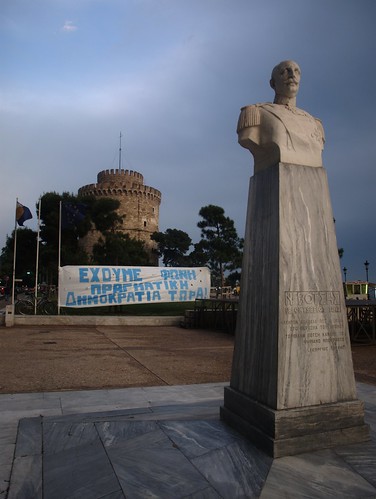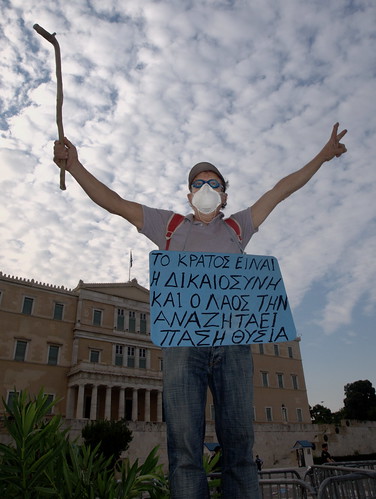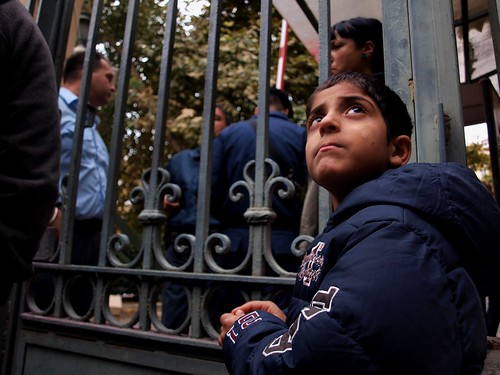
After months of official government announcements and newspaper headlines, Greece's latest austerity programme has been made public with anger and disbelief coming from all corners, including the country's usually supine media. The news that salaries,pensions, disability benefits and aid to the unemployed will be included in the the 11.9 billion euro package of cuts is likely to spark off a yet more protests as will the likely 40,000 state sector lay offs .
Police officers were the first to react with demonstrations in Athens after the government said that their wages and bonuses would not be exempt from the budget measures being demanded by creditors in return for another cash injection. The Greek language blogosphere was alive with angry responses from police related blogs angry that pre-election promises had not been kept and promising a series of protests over the decision.
The first hurdle facing Greece's fragile three party coalition government is how to persuade their restive backbenchers to voter for measures their supporters violently disagree with. On the one hand many rank and file MPs from New Democracy, PASOK and Democratic Left have said they are opposed but how much of this is principled protest and how much is just a PR ploy designed to keep voters back home sweet is hard to say. During the last two round of cuts much was made of potential backbench revolt which eventually failed to materialise.
The $64,000 question is how such cuts, if they are passed will be enforced without the support of the police. With resentment against yet more austerity rising after a summer lull, police officers are being used ever more frequently to end protests and labour disputes. If they decide that this is not their public function, as one police leader intimated last night during an interview on MEGA TV then what other means of persuasion does the government have? Even the feared quasi - military MAT riot units cannot be everywhere.
The first test of Greek prime minister Samaras's ability to impose his will on a recalcitrant nation will come in September with the opening of the Thessaloniki International Trade Fair which traditionally marks the start of the new political year. The presence of the prime minister and much of the government is also a signal every year for massive protests and last year's event proved no exception with football fans, taxi drivers and anarchists fighting pitched battles with 8000 police officers outside the fair,
Samaras has already announced that this year's attendance at the fair will be a brief one and will not include the traditional state of the nation address which coincides with the most intense of protests. However, even if the Trade Fair passes off without major incident Greece's political calender will provide plenty more opportunities for police and protesters to make their respective stances known





